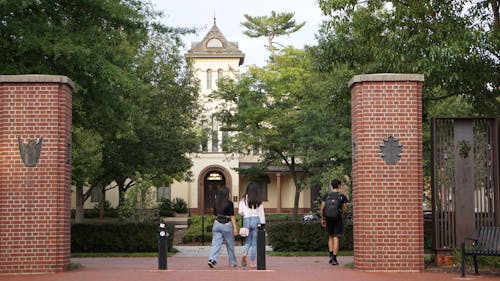Rutgers students share experiences with mental health while returning to campus

With the University's return to campus for the fall, Rutgers students have experienced varying shifts in their mental health while trying to ease back into the lifestyle of taking in-person classes.
Paul Frabizzio, a School of Arts and Sciences sophomore, shared his perspective on how returning to campus has impacted his mental health as a military veteran who lives with post-traumatic stress disorder (PTSD).
Frabizzio had transferred to Rutgers and experienced in-person classes on campus for only a month and a week before the pandemic hit, he said. After he had just begun to get adjusted to being on campus, he said keeping up with and staying focused in Zoom classes was difficult for a while.
He said that returning to campus has benefitted his mental health by allowing him to have a routine and be around more people again.
“It keeps purpose going,” Frabizzio said. “Coming from the military, I’m very routine-oriented. From 5 a.m. to 10 p.m., I’m doing something. So getting back on campus, having somewhere to go, having a timeline to get to places, knowing I need to fit gym time in at this time or make sure I eat, it gives me that clear routine that I was lacking.”
Though, he said being in classrooms with many people and taking crowded buses for the first time in nearly two years can be nerve-racking, as crowds are a significant PTSD stressor for him. He said he had been getting used to being around more people on campus but that the switch to online instruction temporarily disrupted this adjustment.
Jake Garbar, a School of Arts and Sciences junior, said that returning to in-person classes has had a positive effect on his mental health through improved social interactions. He said the one minor downside is that the adjustment can be draining for him after not having been in that environment for so long.
“I find myself to be somebody that has a small social battery ... my social battery will be drained pretty quickly when going out to classes and having to interact with classmates and speaking in class, talking to professors — it can be a lot sometimes on top of maintaining a job where I have to talk to people all the time and then my social life,” he said. “I definitely need time to recharge.”
Christopher Rodriguez, a School of Arts and Sciences junior, said he has not felt any negative effects on his mental health from returning to campus. He said he is used to the workload of in-person classes from before the pandemic and is glad to come back to this learning format because he learns better in person.
In terms of how Rutgers has addressed students’ mental well-being in returning to campus, Rodriguez mentioned the idea of making Rutgers Counseling, Alcohol and Other Drug Assistance Program & Psychiatric Services (CAPS) more accessible to students.
“I know Rutgers has CAPS, but in my experience, they're always booked full,” Rodriguez said. “If they were to open it up to a greater capacity and have more staff in any sort of way, that would be pretty great.”
Frabizzio said that as a student veteran, he thinks Rutgers has done really well in addressing students’ mental well-being this semester. He said the Office of Veteran and Military Programs and Services has reached out to him with guidance and resources for support.
“On the personal level, every professor has been hands-on, face-to-face — ‘Is everybody okay?’” Frabizzio said. “Check-ins during class — ‘Does anybody need anything? Are you struggling?’ I think that's cool.”
He said his strategies to maintain mental health include routinely listening to music on headphones, going to the gym for at least 2 hours a day, reading at night, journaling his daily thoughts and talking to loved ones.
Garbar said time management has helped him to better maintain his mental health when adjusting to being back on campus in regard to academics as well as making time for friends. He said coming up with a schedule to get his work done in advance has given him ease of mind and the ability to relax at the end of the day.
“Right now, where everyone's caught up in going back to normal, being back in person ... I feel like (it) definitely can be kind of overwhelming,” Garbar said. “So even implementing three days or something just to have a mental recharge day, I think that would be super helpful.”



